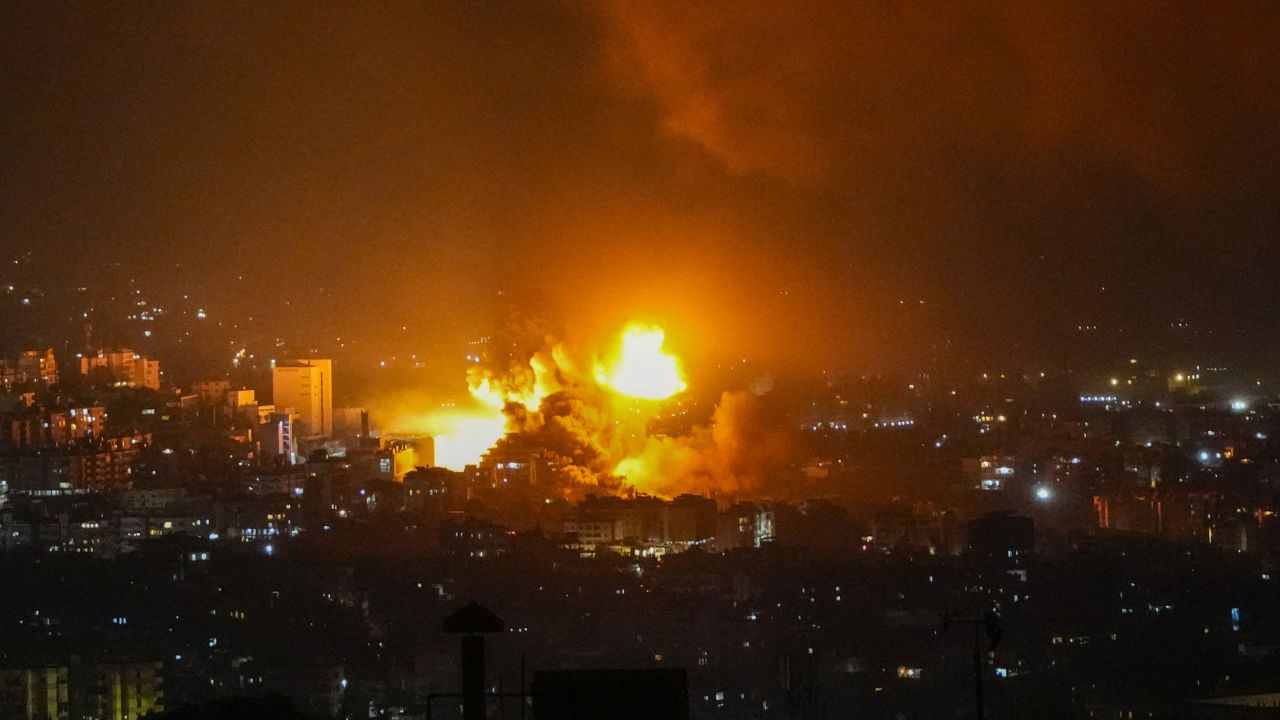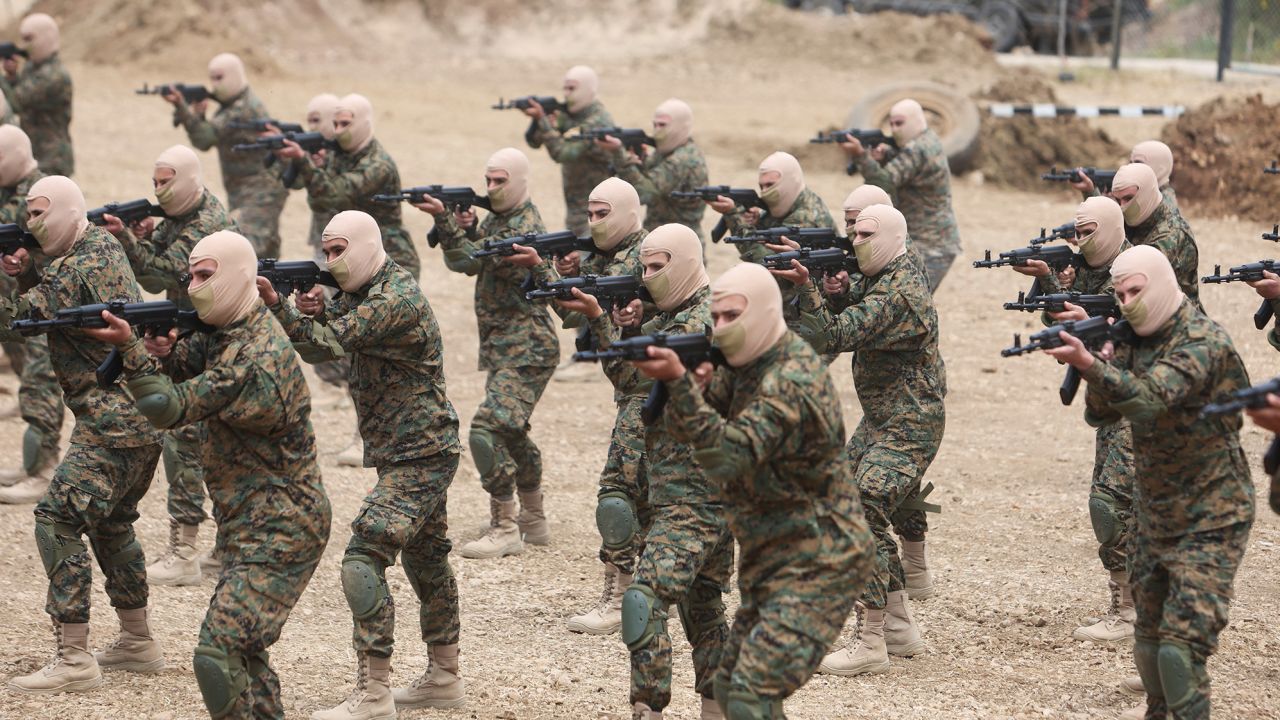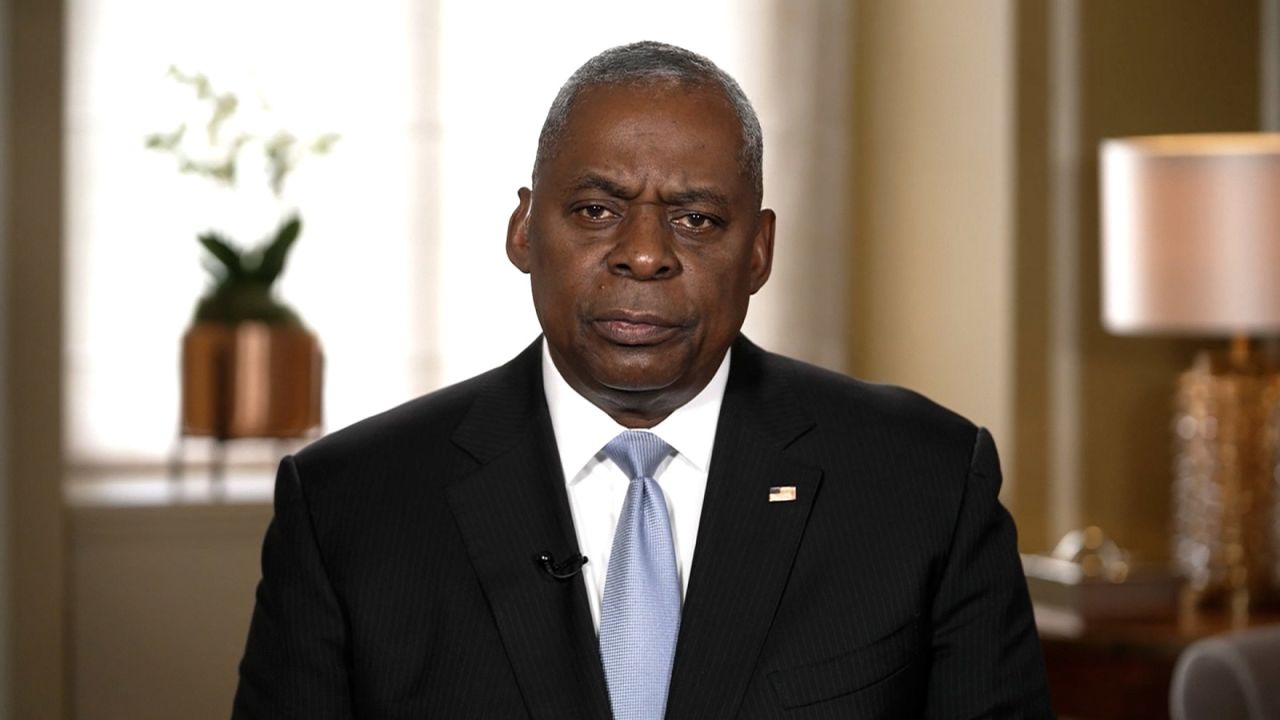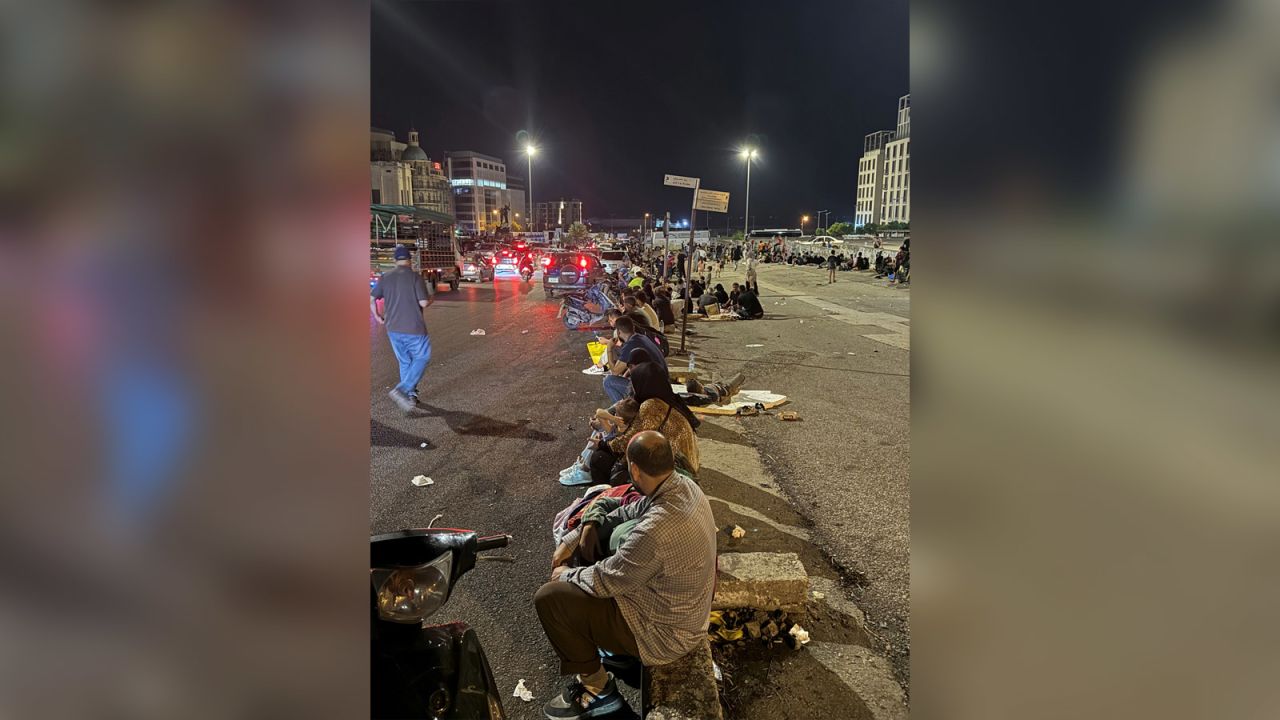Hezbollah members take part in a military exercise during a media tour in Aaramta, Lebanon on May 21, 2023.
Aziz Taher/Reuters
Explosions rocked Beirut on Friday and Saturday as Israeli strikes first targeted Hezbollah leader Hassan Nasrallah, then several buildings which, it alleges, are storing the militant group’s missiles in the Lebanese capital.
While this is a recent escalation in fighting, here’s what to know about their decades-long conflict:
Israeli invasion: Israel took almost half of Lebanon’s territory when its forces invaded in 1982, responding to attacks by the Palestine Liberation Organization. This included Beirut, where Israeli forces, along with right-wing Israel-allied Christian Lebanese militias, laid siege to the western part of the capital to drive out Palestinian militants.
Israel’s operation led to the deaths of over 17,000 people, according to reports and an Israeli inquiry into a massacre at a Beirut refugee camp. The investigation held Israel indirectly responsible for the massacre carried out by the Christian Lebanese fighters.
The rise of Hezbollah: As droves of Palestinian fighters left Lebanon, a band of Shia Islamist militants trained by Iran burst onto the scene. In 1983, two suicide bombers linked to the faction attacked a US Marine barracks in Beirut, killing almost 300 US and French personnel and civilians.
A year later, Iran-linked fighters bombed the US Embassy in Beirut, killing 23 people. In 1985, those militants coalesced around a newly founded organization: Hezbollah.
Support for Gaza: Hezbollah is part of a larger Iran-led alliance of militant groups spanning Yemen, Syria, Gaza, and Iraq that has increasingly clashed with Israel and its allies since the war with Hamas started — and has vowed to continue until the war ends.
Killing of key leader: Tensions escalated when Israel said it killed Hezbollah’s most senior military commander, Fu’ad Shukr, with a strike on Beirut in July. In retaliation, Hezbollah launched hundreds of drones and missiles into Israel.
Displaced residents: The increase in cross-border fighting has forced people from their homes in both Israel and Lebanon. Israel this month made it a war objective to return tens of thousands of Israel’s northern residents to their homes near the border. Lebanon has recorded more than 100,000 people displaced, but authorities said the true number is likely much higher.





































